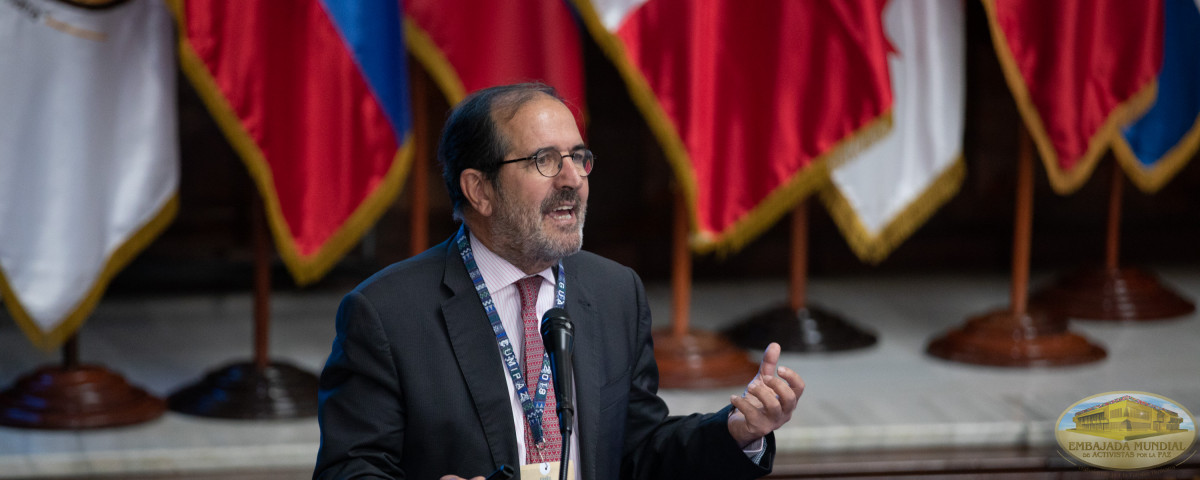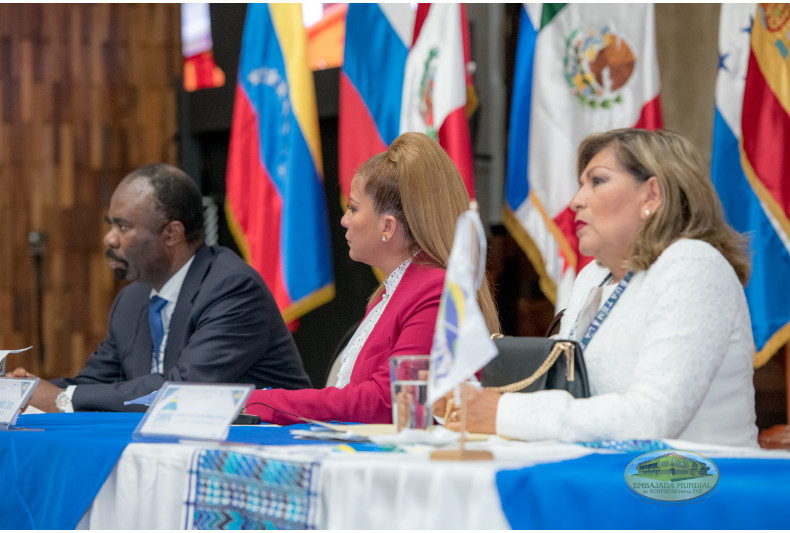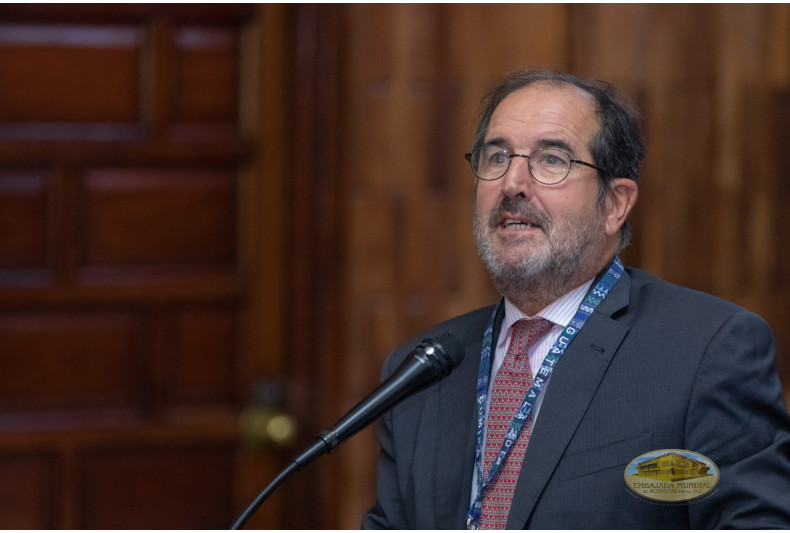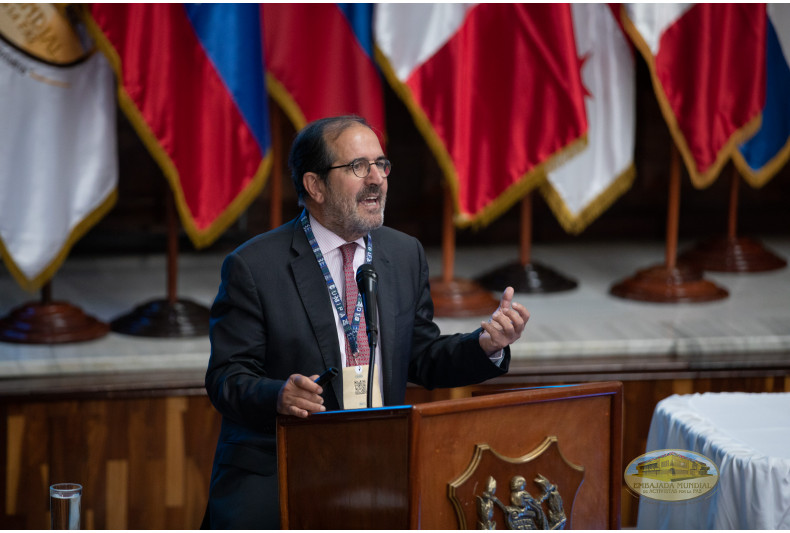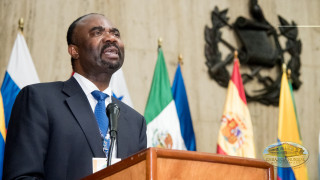"The future is in the International Criminal Court" says Martínez
See GalleryAndrés Martínez Arrieta, magistrate of the Supreme Court of Spain, spoke about the scope of universal justice, its achievements, challenges and trials, at the Justice and Democracy Session of the 4th edition of the Peace Integration Summit, CUMIPAZ 2018 - Guatemala.
Martínez met with other magistrates, judges and prosecutors from different countries in the Supreme Court of the Republic of Guatemala, convened by the Global Embassy of Activists for Peace (GEAP), to discuss the mechanisms and actions that promote a global justice system for the peace and security of mankind.
The Spanish magistrate presented an analysis of the principle of universal justice, pointing out the need to strengthen national judicial powers to consolidate global jurisdiction, and, on the other hand, the need for justice not only retributive but also restorative and restorative.
"It is necessary that every citizen knows the content of the prohibited, knows what is the penalty that can be imposed and at the same time know what the rules of due process are, and that requires, therefore, that the rules of the international treaty be incorporated into national legislation," he said.
At the same time, he pointed out that the principle of universal jurisdiction is for certain crimes in which the international community has had a special interest in being persecuted, such as genocide, crimes against humanity, torture, enforced disappearance, terrorism, trafficking in persons, drug trafficking, among others.
He said that universal jurisdiction is the exercise of jurisdiction by national courts regardless of where the crime was committed and regardless of the criminal nature, object of persecution, provided they are in international treaties.
However, he noted that there have been problems in the application of this jurisdiction because most countries have established limits to that exercise, because the exercise of this power may pose problems when developing the trial.
Martinez mentioned the problems that Spain has had, pointing out that it has had to modify its legislation passing from an absolute and general legislation of the universal principle, to a criterion of attribution of the most limited jurisdiction. He also referred to the problems that Belgium and Germany have had to configure the development of universal justice.
"The future is in the International Criminal Court. I am sure that the objections that are currently being put down will give way over time because it is a necessity of the system, it is a need for global coexistence, and at the same time it is a need of the system for the enactment of new international treaties that give life, that update the concepts of the forbidden, of violations of human rights", he emphasized.
The role of judges in universal jurisdiction
The magistrate highlighted the key role of judges in the exercise of universal jurisdiction. "The law is a general mandate for all citizens and is the same for everyone," he said, noting that enforcement also must be equal for all and that judges must make their resolutions to seek equal treatment for citizens before the law, facilitating security.
"That the resolutions are predictable, are foreseeable, that is, that one can more or less know, know what the criterion or the decision of the judge will be because it falls within the framework of the rule of law, and, therefore, the judge meets with the norm, executes the vision of the norm, resolves the closed conflict".
